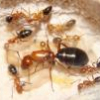To start I will address a consistent part of your post which is that you have incorrectly determined that I am arguing for an unrealistic and absurd application of exhaustive scientific definition and explanation for literally every singe statement made in any context and at all times on any subject. I am not doing this, you are very mistaken, and so I will ignore the parts of your post where you are criticizing my argument on this basis (which is in a lot of places).
I made no such determination or assertion.
These techniques can be at best a waste of time and at worst actively detrimental.
I'd argue that these techniques could be at best effective, until demonstrated otherwise.
The problem with them doing this without higher standards is that it has the potential to generate very bad advice that never gets corrected by information from reality.
That which is very bad advice tends to consistently have very bad results, which leads to self-correction even if not at the pace or vigor you'd prefer. That which is not very bad advice is probably harmless and inconsequential.
That you chose to pick it apart and assume that I am indeed committing this fallacy rather than asking for clarification before making your judgement to an inconsequential series of twelve words indicates that rather than attempting to engage with the subject at hand you have instead decided to ungenerously assign to me a deficit in basic reasoning skills.
If you'd prefer not to be assigned a deficit in basic reasoning skills, don't so thoroughly demonstrate one.
While it is undeniable that ants and most organisms are as you say susceptible to parasites and disease, there is no evidence that various types of unprocessed media pose an actual threat to a captive ant colony.
The need is demonstrated by the mere potential for the presence of parasites and disease. <- basic reasoning skills
Firstly I am not claiming that these myths are formed by short term enthusiasts, just that they are propagated by short term enthusiasts who cite no evidence and provide only useless anecdotes in support of them.
Which is what I said you said.
I have no idea about other language communities as I don't speak any other languages to a sufficient degree of fluency to make any judgments and as such I have chosen not to do so.
I am not claiming that most natural ant colonies survive the full duration of a queen's potential lifespan, nor am I claiming that most captive colonies would survive that full duration either.
Have you considered evaluating your unintentionally implicit framing and language?
Redundant.
No it isn't.
I am claiming that there is a startling lack of long term journals or other documentation showing that English speaking hobbyists have even a single time managed to raise a colony from a queen of any species under any conditions from colony creation to an age where based on data gathered from the lifespans of wild colonies you could make a fair case that the queen had managed to live to an age that could be considered the natural lifespan of that species.
And I'm arguing that the potential lifespan of a given species is hardly indicative of the mean or average, and that we lack that kind of data for an appropriate comparison. Just because a queen of a given species has the potential to live for 20-30 years, you can't argue this is a fair reflection of life expectancy for comparison between wild and captive queens.
You accuse me of committing logical fallacies but nearly your entire post was dedicated to blowing down strawmen. You claim that my argument is built without science but you fail to understand that the burden of proof for a claim (such as an technique being effective) is on the claimant, not the person doubting the claim. You say you support arguments built on science, but I suggest that you spend more time supporting your own personal development of reading comprehension.
I understand your claim to be that practices built on the anectdotal consensus of the ant keeping community are dubious at best without better vetting and the application of some simple scientific principles. I'd wager that such a claim can be substantiated and there was potential for meeting the burden of proof for such a claim. Put simply, I'm arguing that your assertions failed to support your claim.

























